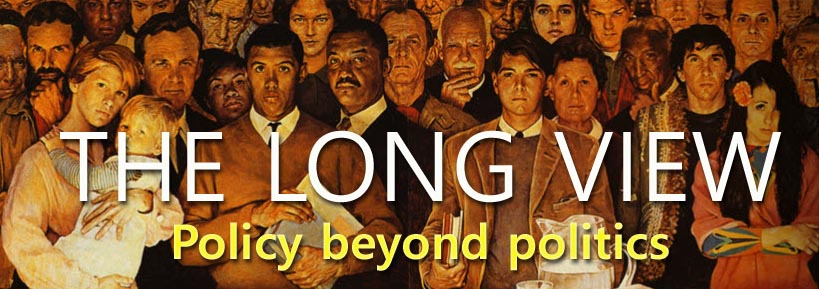“For example, the supporters of tariffs treat it as self-evident that the creation of jobs is a desirable end, in and of itself, regardless of what the persons employed do. That is clearly wrong. If all we want are jobs, we can create any number--for example, have people dig holes and then fill them up again, or perform other useless tasks. Work is sometimes its own reward. Mostly, however, it is the price we pay to get the things we want. Our real objective is not just jobs but productive jobs--jobs that will mean more goods and services to consume.”
Milton Friedman, Free to ChooseBack in 1929, at the onset of the Great Depression, Laurel and Hardy filmed "Big Business" ,a slapstick comedy that portrayed an escalation of hostilities, from small gestures to mutually assured destruction. (You may want to skip until 11 on the video to watch the climax that reflects what a tariff war looks like to a rational spectator and how it ends)
That was indeed what happened a few years later, when the US Congress passed the Smooth-Hawley Act and started the first global trade war.
Once upon a time Republicans listened to one of their eminent economists, Nobel Laureate Milton Friedman explain why trade wars and tariffs are self-punishment and bad economics:
That one brought Hitler, Mussolini, Franco, Lenin and the Japanese fascists to power and with them, the logical next step that was World War II.
Sixty million deaths and seventy-five years later, a populist president toys with starting a tariff war with all US's major commercial partners at once: China, EU, Canada and Mexico.
The promise for the fools is the same than in 1932: jobs will come back, salaries will go up and the "unfair" competitors will surrender.
Economist Bryan Caplan explains why voters self-immolate for a second time in his educational book "The Myth of the Rational Voter"
Fool me twice...
